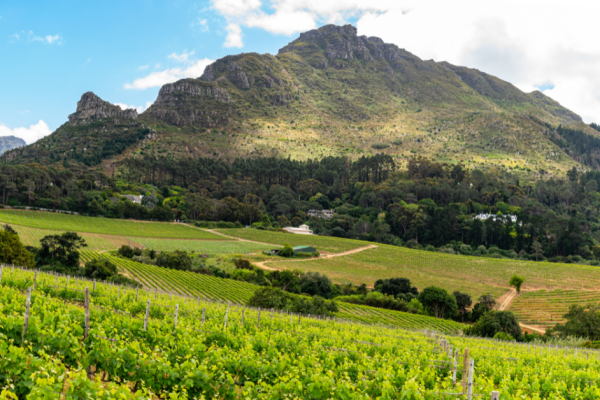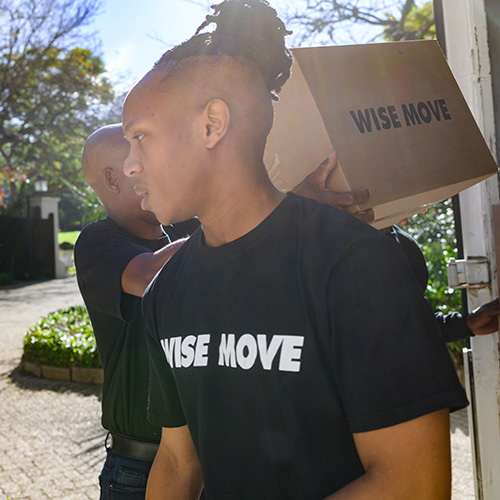Community food gardens planting hope in South Africa

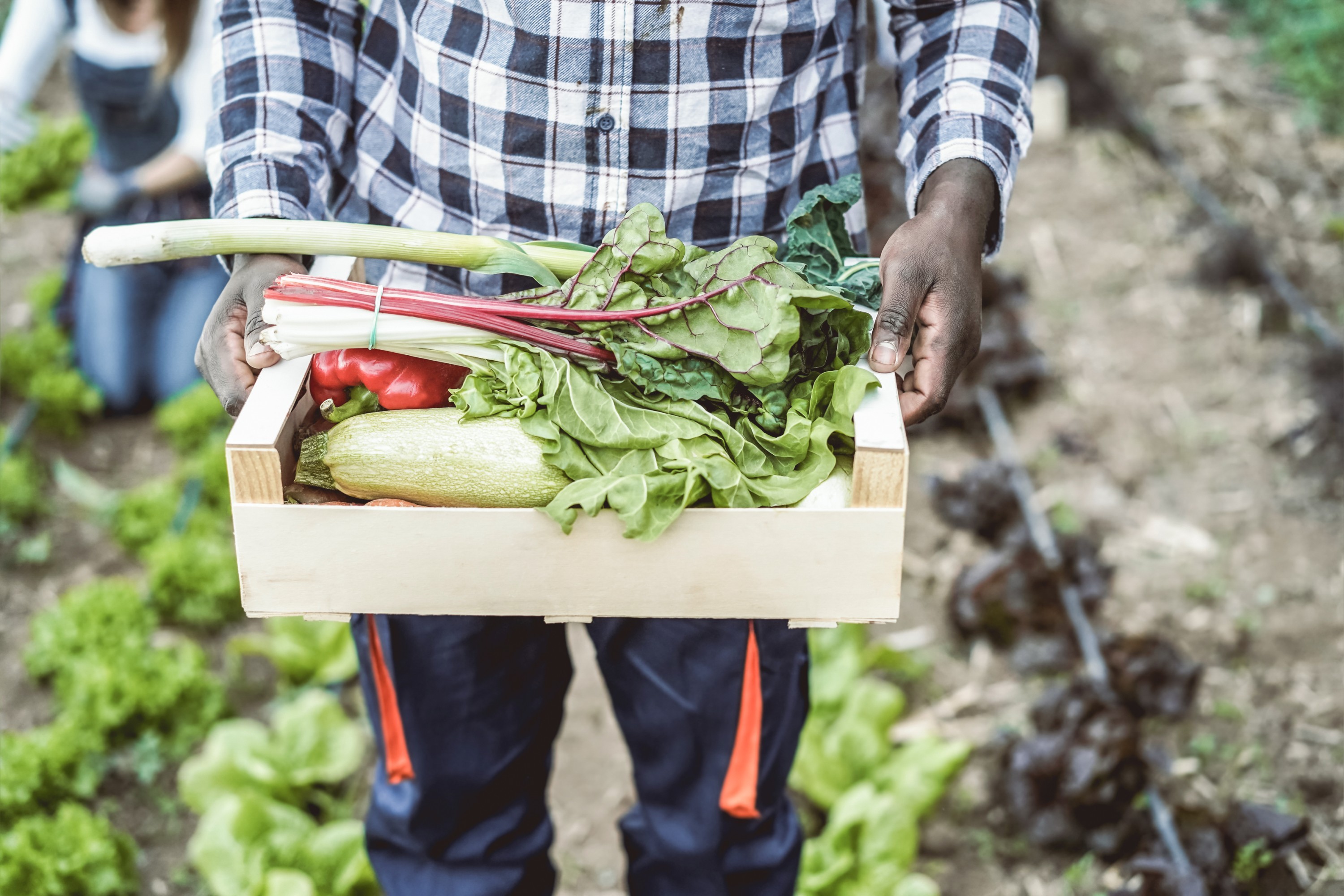
If you want to improve people’s lives quickly, then starting a community food garden is a great place to start. And nowhere more so than in South Africa, where informal and subsistence farming doesn’t happen on the scale of other countries that face similar economic challenges, such as Brazil or India.
That is starting to change. A veritable hotbed of community gardens is sprouting all over the country.
These gardens vary wildly. They are rural or urban, organised or spontaneous, for profit or the gardeners’ table. All are rooted in one big idea —growing fruit and vegetables in a neighbourhood not only feeds the needy, it can also feed the soul of a community. These gardens create livelihoods, forge friendships and trust, and build the self-worth that results from literally reaping the fruits of your labour.
Read on to discover the pick of South Africa’s community gardening projects.
Kwakhanya Greening and Home-Based Care
Kwakhanya Greening and Home-Based Care runs a dynamic community garden in Khayelitsha—a huge township near Cape Town with a high unemployment rate.
View this post on Instagram
Kwakhanya was established in 2009 to support people living with HIV/AIDS. Its garden was founded in 2021 by Nobesuthu Magida, who was raised in a poor Eastern Cape family that routinely grew their own vegetables. She realised that malnutrition was a big risk for HIV-positive people.
Since then, the garden has flourished, thanks in part to the pioneering Food Forward project, which trains Kwakhanya’s gardeners, provides equipment and advice, and buys back any surpluses that they grow to stock its food banks across the Western Cape. So the participants don’t only feed themselves and their families by growing nutritious veggies such as spinach, carrots and cabbage—they also earn a cash income and help to feed others in need.
The Missionvale Care Centre Garden
The Missionvale Care Centre in Bethelsdorp, near Gqeberha (formerly Port Elizabeth) in the Eastern Cape, has established a thriving community garden that is supported by the organisation Farming God’s Way.
View this post on Instagram
As the area has been drought-hit for several years and the municipal water supply is patchy, the project uses a brilliant water recycling technique. The garden is routinely covered with hay to trap its moisture, which is then fed into a reservoir and Jo-Jo storage tanks, which conserve this water to irrigate the garden. This year alone, the project has yielded vegetables worth R400,000.
Gardeners also earn coupons that can be spent on other goods at a community swap shop, and food insecurity in the neighbourhood has fallen dramatically.
The Modulaqhowa Co-operative
The Modulaqhowa Primary Co-operative was founded in 1991 as a closed corporation in Botshabelo, a township near Bloemfontein in the Free State. It has since become an acclaimed, women-led farming co-operative.
View this post on Instagram
Modulaqhowa’s nursery grows indigenous trees, fruit trees, flowers, vegetable seedlings and shrubs. The team is also a hotbed of best practices—they use manure and plant waste for compost, save water smartly, and hedge their risk by having a wide range of buyers.
Most importantly, they’ve built a strong, caring team that develops and supports each worker. No surprise, then, that Modulaqhoawa won the Communal Farming Association of the Year gong at this year’s Toyota South Africa and AgriSA farmers’ awards.
The Phumulani Agri-Village Food Garden
Mining company Exxaro established the Phumulani Agri-Village Food Garden near Belfast in Mpumalanga in 2020, as a way to create new livelihoods for 32 households who were voluntarily resettled to make way for a mine project.
View this post on Instagram
Exxaro invested R6.7 million in the agri-village and provided the land for the project. They allotted 2500m2 plots to each household for small-scale livestock farming and food gardening.
The farmers have been trained and mentored by the NGO Siyakhana Growth and Development AND the Centre for Ecological Intelligence at the University of Johannesburg. They are also equipped with greenhouses and a water-conserving drip irrigation system. The long-term plan is for the village to supply local school feeding schemes, guest houses and retail stores.
The Ditshego Permaculture Garden
The Ditshego Permaculture Garden in Centurion, Gauteng, is a project run by Ditshego House of Laughter, an NGO founded in 2007, which supports 250 children in the 40,000-strong Mooiplaas community.
View this post on Instagram
Given that Mooiplaas is a neglected place, lacking basic services such as crèches, schools, clinics or running water, the simple fact of growing and sharing freshly grown food is a force for physical, emotional and mental health—and a deeper sense of community is a natural byproduct.
The garden is maintained by staff and volunteers, and it has already yielded a wealth of healthy produce, such as pumpkin, nuts (a crop that demands patience) and spinach. Once the Ditshego children are fed, surplus produce is given to the community at large.
Why community gardening matters
The community garden is a very old idea—long before the modern era, villagers around the world tended their crops together on shared communal land.
In the early-to-mid 20th century, the UK witnessed a national mania for allotment gardening, in which millions of Britons tended their small adjacent plots, growing and bartering food for their rationing-deprived kitchens.
In today’s atomised, commerce-driven societies, gardening together has a fresh and powerful meaning—the patient physical work helps us understand the true value of food, while also saving us cash. And the simple act of growing a row of plants with a neighbour who was once a stranger can be a leafy antidote to loneliness.
What do our customers say?


What’s happening?
Please notify us of any violations. This information will be kept confidential and shared only with Wise Move.
- It’s inaccurate or incorrect
- If you find it offensive
- It’s something else



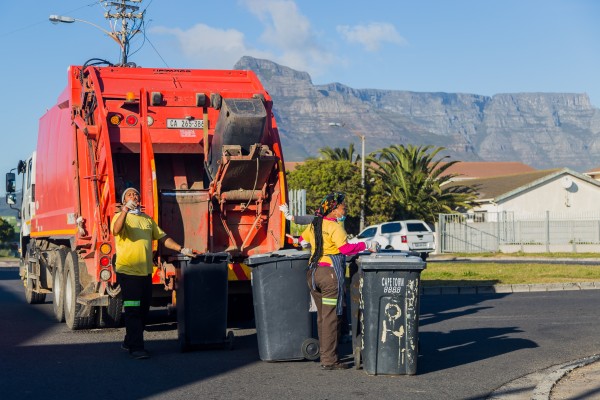

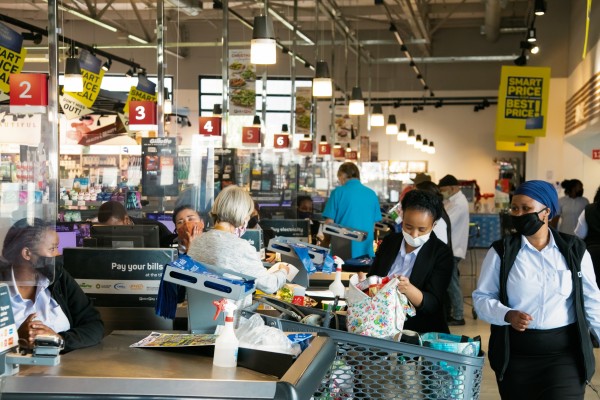
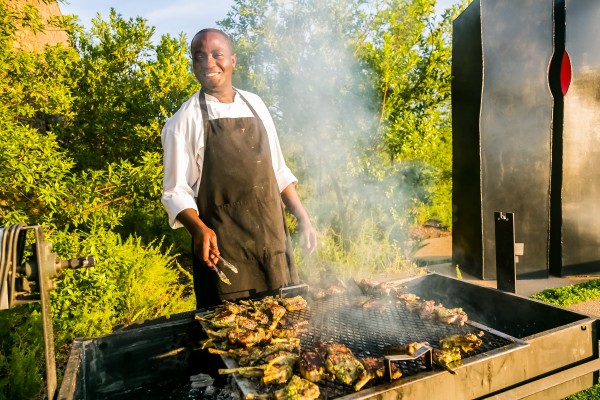

![4 Options for Small Business Funding in South Africa [2025] 4 Options for Small Business Funding in South Africa [2025]](https://cdn.wisemove.co.za/image/blog/fdeabac70544bb1ae3cf420850191033.png)











